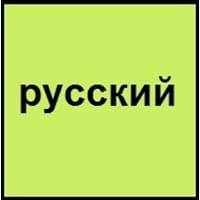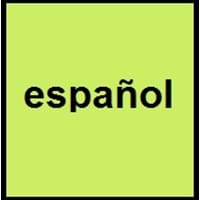Countries
Belarus, Kazakhstan, Kyrgyzstan, Tajikistan
Andora, Argentina, Aruba, Australia, Belize, Bolivia, Brazil, Canada, Chile, Colombia, Costa Rica, Cuba, Dominican Republic, Ecuador, El Salvador, Equatorial Guinea, France, Gibraltar, Guatemala, Honduras, Jamaica, Latvia, Luxembourg, Mexico, Morocco, Namibia, Netherlands Antilles, New Zealand, Nicaragua, Norway, Panama, Paraguay, Peru, Philippines, Puerto Rico, Russia, Spain, Sweden, Switzerland, Trinidad and Tobago, Turkey, United Kingdom, United States of America, Uruguay, Venezuela, Western Sahara
National Language
Russia
Spain
Second Language
Afganistan
Andora, Aruba, Australia, Austria, Belgium, Belize, Brazil, Bulgaria, Canada, Denmark, France, Germany, Ireland, Israel, Italy, Jamaica, Luxembourg, Morocco, Netherlands, Netherlands Antilles, New Zealand, Philippines, Poland, Portugal, Romania, Russia, Slovenia, Switzerland, Trinidad and Tobago, Turkey, United Kingdom, United States of America, US Virgin Islands
Speaking Continents
Asia, Europe
Africa, Asia, Europe, North America, South America
Minority Language
Armenia, Azerbaijan, Bulgaria, Estonia, Finland, Georgia, Germany, Greece, Israel, Jordan, Latvia, Lithuania, Mongolia, Poland, Serbia, Tajikistan, Turkey, Turkmenistan, Ukraine, Uzbekistan
Brazil, France, Germany, Italy, Japan, Morocco, United Kingdom
Regulated By
Russian Academy, Russian Language Institute of the Russian Academy of Sciences
Asociación de Academias de la Lengua Española
Interesting Facts
- In Russian language, the words are not pronounced as they are written.
- In Russian language, there are only 200,000 words out of which only few words are used and due to this many words have more than one meaning.
- One of the world's most phonetic language is Spanish.
- Up to the 18th century, Spanish was diplomatic language.
Similar To
Ukrainian and Belarusian Languages
French Language
Derived From
Proto-Slavic Vocabulary
Latin
Alphabets in
Russian-Alphabets.jpg#200
Spanish-Alphabets.jpg#200
Writing Direction
Left-To-Right, Horizontal
Left-To-Right, Horizontal
Hello
здравствуйте(zdravstvuyte)
hola
Thank You
спасибо(spasibo)
Gracias
How Are You?
Как дела? (Kak dela?)
Cómo estás?
Good Night
Спокойной Ночи(Spokoynoy Nochi)
Buenas Noches
Good Evening
Добрый Вечер(Dobryy Vecher)
Bonne soirée
Good Afternoon
Добрый День(Dobryy Den')
Buenas Tardes
Good Morning
Доброе Утро(Dobroye Utro)
Buenos Días
Please
пожалуйста(pozhaluysta)
Por Favor
Sorry
Извините(Izvinite)
triste
Bye
до свидания(do svidaniya)
adiós
I Love You
Я тебя люблю(YA tebya lyublyu)
Te Quiero
Excuse Me
извините(izvinite)
Discúlpeme
Dialect 1
Doukhobor Russian
Mexican Spanish
Where They Speak
Alberta, British Columbia, Canada, Saskatchewan
Mexico
Dialect 2
Olonets
Cuban Spanish
Where They Speak
Olonets
Cuba
How Many People Speak
Not Available
Dialect 3
Novgorod
Puerto Rican Spanish
Where They Speak
Novgorod
Puerto Rico
How Many People Speak
Not Available
Native Name
Русский
Español
Alternative Names
Russki
Castellano, Castilian, Español
French Name
russe
espagnol; castillan
German Name
Russisch
Spanisch
Pronunciation
[ˈruskʲɪj jɪˈzɨk]
[espaˈɲol], [kasteˈʎano]
Ethnicity
Russians
Not Available
Language Family
Indo-European Family, Slavic Family
Indo-European Family
Branch
Eastern
Not Available
Early Forms
Old East Slavic
Old Spanish and Spanish
Standard Forms
Standard Russian
Pluricentric Standard Spanish
Signed Forms
Signed Russian
Signed Spanish
Scope
Individual
Individual
ISO 639 6
Not Available
Not Available
Glottocode
russ1263
stan1288
Linguasphere
53-AAA-ea
51-AAA-b
Language Type
Living
Living
Language Linguistic Typology
Subject-Verb-Object
Subject-Object-Verb
Language Morphological Typology
Fusional, Synthetic
Fusional, Synthetic
Russian and Spanish Greetings
People around the world use different languages to interact with each other. Even if we cannot communicate fluently in any language, it will always be beneficial to know about some of the common greetings or phrases from that language. This is where Russian and Spanish greetings helps you to understand basic phrases in Russian and Spanish language. Russian word for "Hello" is здравствуйте(zdravstvuyte) or Spanish word for "Thank You" is Gracias. Find more of such common Russian Greetings and Spanish Greetings. These greetings will help you to be more confident when conversing with natives that speak these languages.
Russian vs Spanish Difficulty
The Russian vs Spanish difficulty level basically depends on the number of Russian Alphabets and Spanish Alphabets. Also the number of vowels and consonants in the language plays an important role in deciding the difficulty level of that language. The important points to be considered when we compare Russian and Spanish are the origin, speaking countries, language family, different greetings, speaking population of these languages. Want to know in Russian and Spanish, which language is harder to learn? Time required to learn Russian is 44 weeks while to learn Spanish time required is 24 weeks.





